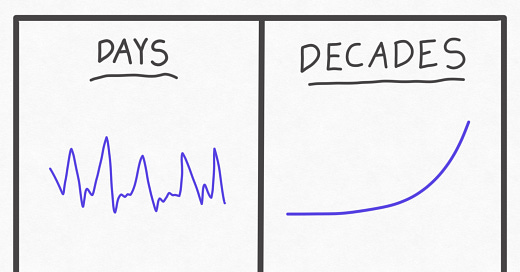A Few Things: Escaping the X-Axis, Happiness 401(k), Becoming Superhuman, Blockchain Infrastructure
February 19, 2022
I am sharing this weekly email with you because I count you in the group of people I learn from and enjoy being around.
“Things that matter most must never be at the mercy of things that matter least.”
- Johann Wolfgang von Goethe
“If you are ever tempted to look for outside approval, realise that you have compromised your integrity. If you need a witnes…


